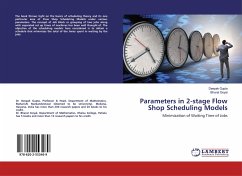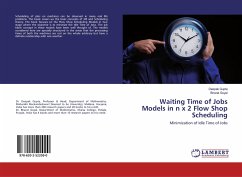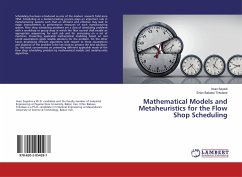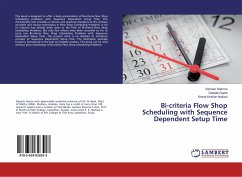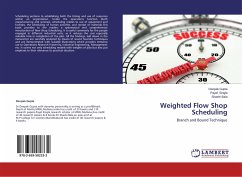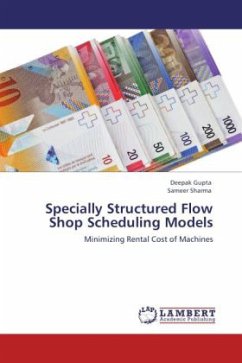
Fuzzy Flow Shop Scheduling Models
Minimizing Rental Cost
Versandkostenfrei!
Versandfertig in 6-10 Tagen
36,99 €
inkl. MwSt.

PAYBACK Punkte
18 °P sammeln!
This book is imperative because it is representative of the current state of the art in fuzzy set-based scheduling. Its publication proves that some operational research scientists starts to consider fuzzy sets seriously as a bridge for a reconciliation between mathematical modeling and human scheduling practice. It is solely dedicated to bringing together a huge body of knowledge on the subject, along distinct designed featured,in order to help scholars and practitioners easily identify problems of interest. The chapters cover a variety of fuzzy flow shop systems including specially structure...
This book is imperative because it is representative of the current state of the art in fuzzy set-based scheduling. Its publication proves that some operational research scientists starts to consider fuzzy sets seriously as a bridge for a reconciliation between mathematical modeling and human scheduling practice. It is solely dedicated to bringing together a huge body of knowledge on the subject, along distinct designed featured,in order to help scholars and practitioners easily identify problems of interest. The chapters cover a variety of fuzzy flow shop systems including specially structured models, bicriteria problems, specified time lag constraint and more. The authors have made the material accessible to a broad readership, using simplified notation and revealing unifying concepts. The results unique to flow shop research should provide the seed for research in other areas of scheduling and in optimization in general.



